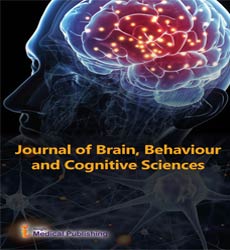Advancement in Neurosciences
Aini Ismafairus Abd Hamid*
1Department of Neurosciences, University Sains Malaysia, Kubang Kerian, Malaysia
- *Corresponding Author:
- Aini Ismafairus Abd Hamid
- Department of Neurosciences, University Sains Malaysia, Kubang Kerian, Malaysia,
- Tel: 626395 4945
- E-mail: ainiismafairs12@usm.my
Received Date: July 07, 2021; Accepted Date: July 22, 2021; Published Date: July 29, 2021
Citation: Hamid AIA (2021) Advancement in Neurosciences. J Brain Behav Cogn Sci Vol.4 No.4:4
Commentary
The study of the neurological system is known as Neuroscience. This field has grown to include a variety of approaches to studying the nervous system at various scales, and neuroscientist’s techniques have vastly expanded, ranging from individual neuron molecular and cellular investigations to brain imaging of sensory, motor, and cognitive activities. This has encouraged and made neuroscientists to investigate the nervous system in all of its features, including how it is organized, how it performs, how it develops, how it malfunctions. It became viable to comprehend the intricate processes that occur within a single neuron in great detail. Neurons are communicationspecialized cells. They can communicate with neurons and other cell types via synapses, which are specialized junctions where electrical or electrochemical impulses can be passed from one cell to another. Many neurons extrude an axon, a long thin filament of axoplasm capable of swiftly transmitting electrical messages and regulating the activity of other neurons, muscles, or glands at their termination ends. A neurological system is formed by a collection of neurons which are connected to one another. The dynamic complexity of the nervous system is a tremendous scientific challenge. Eventually, neuroscientists want to know everything there is to know about the nervous system, including how it works, develops, malfunctions, and may be altered or fixed. Specific research topics evolve with time, owing to an ever-growing body of knowledge and the availability of increasingly sophisticated technical approaches. Technology advancements have been the fundamental drivers of progress. Progress has been fueled by advances in electron microscopy, computer science, electronics, functional neuroimaging, genetics, and genomics. Social and behavioral sciences, as well as fledgling multidisciplinary fields, ear all linekd to neuroscience.
Cellular neuroscience is a subfield of neuroscience that studies neurons at the cellular level. The nervous system's patterning and regionalization, neural stem cells, neuronal and glial differentiation, neuronal migration, axonal and dendritic development, trophic relationships, and synapse creation are all topics under investigation. Neurology is concerned with illnesses of the central and peripheral nervous systems, such as Amyotrophic Lateral Sclerosis (ALS) and stroke, as well as the medical treatment of these conditions. Affective, behavioral, cognitive, and perceptual disorders are the focus of psychiatry. Anesthesiology focuses on pain perception and pharmacologic consciousness modulation. Neuropathology is focused with the classification and pathogenic mechanisms of disorders of the central and peripheral nerve systems, as well as muscle ailments, with a focus on morphologic, microscopic, and chemically detectable changes. The surgical treatment of illnesses of the central and peripheral nerve systems is the focus of neurosurgery and psychosurgery. Integrative neuroscience is a branch of neuroscience that aims to better comprehend complex structures and behaviors by combining functional organization data which refers to the endeavor to construct a coherent model of the nervous system by combining models and data from several levels of research. Neuroscientists have joined with other education specialitss to achieve an integrated approach known as educational neuroscience, to examine and enhance educational strategies to optimize student learning. A better knowledge of neurological aspects can aid in the development of drugs and other treatment and prevention measures for these and other health problems.
Open Access Journals
- Aquaculture & Veterinary Science
- Chemistry & Chemical Sciences
- Clinical Sciences
- Engineering
- General Science
- Genetics & Molecular Biology
- Health Care & Nursing
- Immunology & Microbiology
- Materials Science
- Mathematics & Physics
- Medical Sciences
- Neurology & Psychiatry
- Oncology & Cancer Science
- Pharmaceutical Sciences
